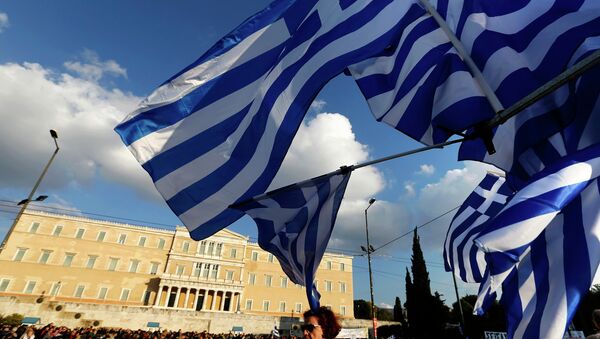The Greek government agreed to extend the currently-in-effect bailout programfor another four months – something the new cabinet in Athens had previously declined to do. However, the Syriza-led Greek government managed to negotiate a very important concession – the reforms in the nation’s economy will be devised by Athens, not the so-called ‘Troika’ of the IMF-EU-ECB, turning the whole deal into a gimmick of protraction. And while both Germany and Greece are claiming victory or, at the very least, a diplomatic success, in fact, this is a lose-lose situation for the stagnant Eurozone.
The first reason for the ‘Grexit’ is Greece’s long-lasting economic efficiency and reluctance to do anything about it. Greece’s economy is ruined now, however, its current situation has been brewing for a very long time. Structural deficits and excessive governmental indebtedness first took their toll eight (!) years ago, and only after the three consecutive recessions in a row (in Q3-Q4 2007, Q2-2008 and Q3-2009), coinciding with the global economic downturn, Athens launched the ‘Troika’-funded bailout program in 2010. That year, Greece was on the verge of sovereign default, with a debt-to-GDP ratio of 146% (compared to 127% in 2009) and a junk-level investment rating. The 110 bln euro, allocated by the Troika of EU-IMF-ECB to fund the reforms and cover Greece’s financial needs during 2010-2013, have disappeared to no avail as proper austerity measures were never enforced by Athens. By contrast, just about that time Ireland, another heavily indebted Eurozone nation, completed their Troika-funded reform-and-austerity package and emerged with a robust recovery. That said, the Greeks must be unable or unwilling to play by the common rules, and the Eurozone cannot afford any ‘freeriders’ at this point. Greece must go.
The third and the last major reason for Greece needs to leave is the nation owes some 320 bln euros – most of which to Germany – is not in fact as bankrupt it claims to be. Athens has the money to repay their debt straight way, they simply do not want to sell their assets, longing for the endless windfall of international bailout money.
By the way, in the year 2001 Greece spent slightly below 12% its GDP on pensions, expanding social guarantees at the expense of borrowing from Germany and other foreign nations. At the same time, interest payments by the Greek cabinet fell from 7.3% GDP in 2011 to 4.2% GDP in 2014 and are projected to be at 2.2% in 2020. Just for comparison’s sake, Ireland – the nation that successfully overcame its debt crisis – paid 4.4% GDP towards interest in 2013. Which means, the Greek could reform their economy if they wanted to.






